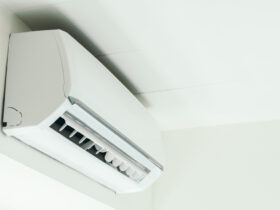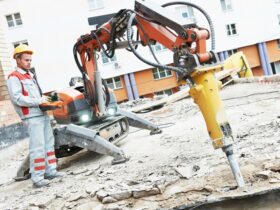Security guards play a vital role in maintaining safety and order across various environments, from commercial establishments to residential complexes and public events. However, while their primary responsibility is to protect others, it is equally important to focus on the safety and well-being of the security guards themselves. In this blog, we will delve into the importance of security guard safety, the challenges they face, and the measures that can be implemented to ensure their well-being.
The Role of Security Guards
Security guards serve as the first line of defense in safeguarding people, property, and assets. Their duties range from monitoring surveillance cameras, conducting patrols, and managing access control to responding to emergencies, deterring criminal activity, and assisting in evacuations. Given the nature of their work, security guards often find themselves in high-stress situations that can pose significant risks to their safety.
The Challenges Security Guards Face
Security guards face a myriad of challenges that can impact their safety and well-being. Some of the most common challenges include:
- Physical Threats:
- Security guards are often exposed to physical dangers, especially in high-crime areas or during confrontations with aggressive individuals. The risk of injury from assaults, accidents, or other violent incidents is a constant concern.
- Mental and Emotional Stress:
- The job of a security guard can be mentally and emotionally taxing. The need to remain vigilant for extended periods, coupled with the pressure of making quick decisions in emergencies, can lead to stress, anxiety, and burnout.
- Exposure to Hazardous Environments:
- Security guards may be required to work in hazardous environments, such as construction sites, industrial facilities, or during natural disasters. Exposure to harmful chemicals, extreme weather conditions, or unsafe structural conditions can compromise their health.
- Long and Irregular Working Hours:
- Many security guards work long hours, often in shifts that can include nights, weekends, and holidays. The irregular hours can lead to fatigue, sleep disorders, and other health issues, further increasing the risk of accidents and errors on the job.
- Lack of Proper Equipment and Training:
- In some cases, security guards may not be provided with the necessary equipment or training to perform their duties safely. This can include a lack of protective gear, inadequate communication devices, or insufficient training in conflict resolution and emergency response.
Conclusion
Security guards play a critical role in protecting people and property, but their own safety must not be overlooked. Ensuring the well-being of security guards requires a comprehensive approach that includes proper training, equipment, safety protocols, and support. By prioritizing the safety of those who protect us, we not only enhance the effectiveness of security operations but also demonstrate a commitment to the health and well-being of these essential professionals. In a world where security risks are ever-present, taking care of our security guards is a responsibility we cannot afford to neglect.











Find Us on Socials